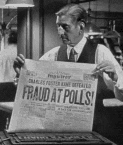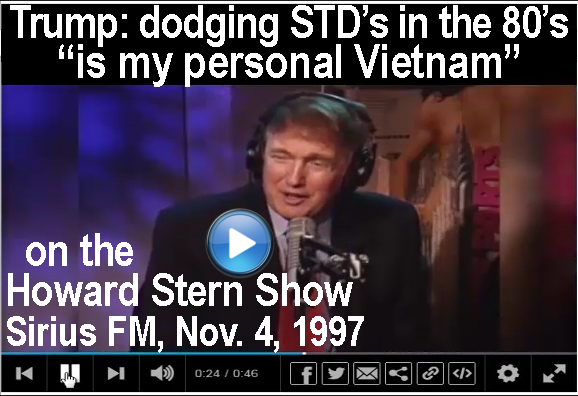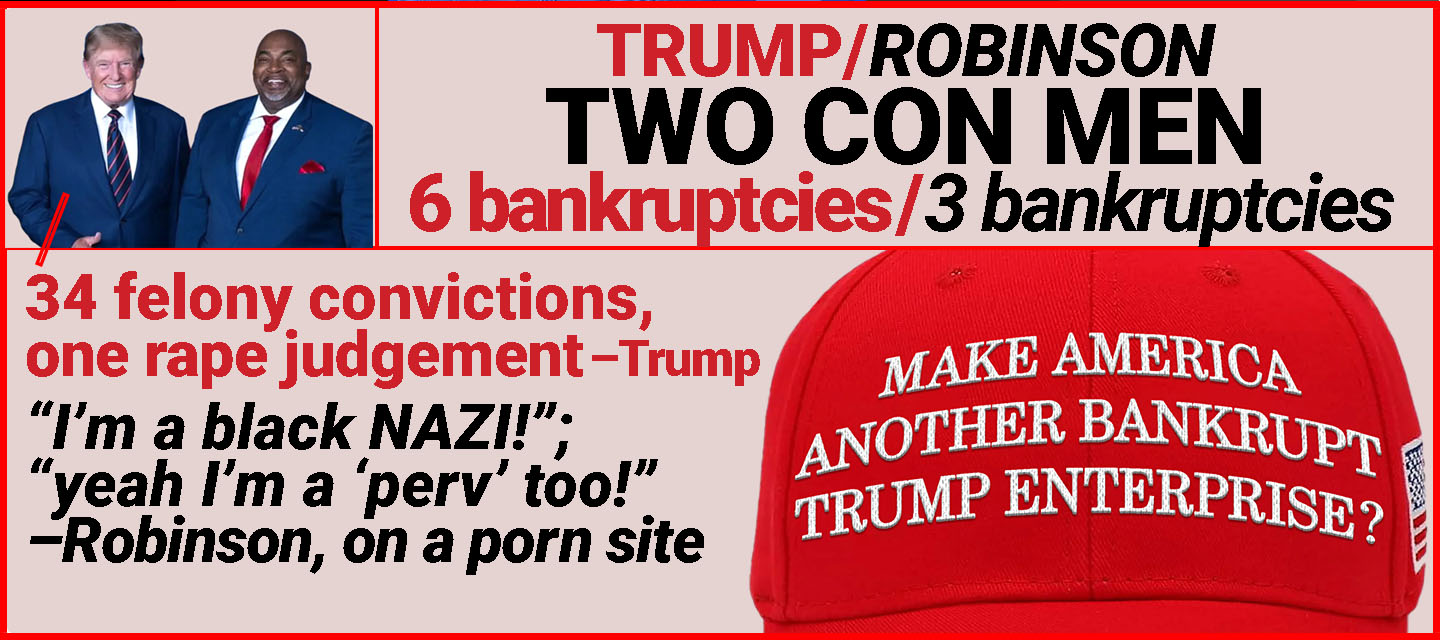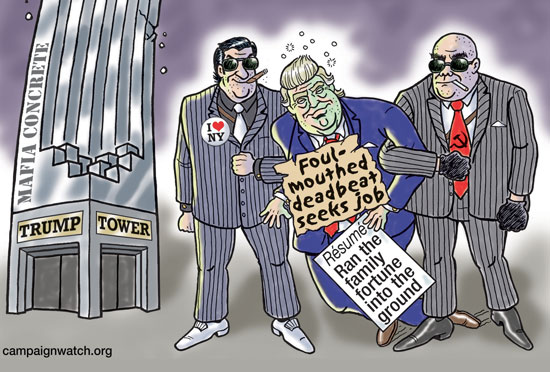
"Vladimir Putin's Russia is a Mafia State."
The Putin-directed assassination of Russian dissident Alexander Litvinenko in London on Nov. 1, 2006, was another manifestation of Russia's character, in Boris Yeltsin's words, as the world's "biggest Mafia state."1 Under Putin, the Russian Mafia and the FSB—successor to the KGB—had joined forces.2 The Owen inquest into the assassination of Litvinenko heard expert testimony that "Vladimir Putin's Russia is a mafia state,"3 echoing Yeltsin's characterization.
From his position as the head of the FSB in 1999, Putin rose to power after apartment bombings killed 293 citizens, which he blamed on Chechnyan terrorists.4 But FSB agents were caught planting bombs in another apartment building.5 Russian investigators of the bombings, Mafia whistle-blowers and journalists are among two dozen since murdered under Putin.6
Putin and his Russian Mafia state are enemies of the US and the NATO alliance. It is therefore alarming that Donald Trump, a candidate for the US presidency, has longstanding ties to Russian Mobsters, has been heavily financed with Russian money, and has offered obsequious praise for Putin, saying that Putin was "[so nice] (T200)," that he [Trump] was "the apple of his eye." Alarmingly, on February 10, 2024, Trump said at a rally in Conway, South Carolina: Russia, do "whatever the hell" you want to a NATO country with low defense spending.
- Robert I. Friedman, Red Mafiya: How the Russian Mob Has Invaded America, Kindle ed., (Boston: Little, Brown and Company, 2009), Loc. 140-45; The New Republic, "Trump's Russian Laundromat: How Trump Tower's Luxury High-Rises Became a Hub for Dirty Money and International Crime Syndicates," July 13, 2017, https://newrepublic.com/article/143586/trumps-russian-laundromat-trump-tower-luxury-high-rises-dirty-money-international-crime-syndicate. For post-Communist Russia as a "Mafiocracy," see also Galeolti, Mark, "Crime, Corruption and the Law," pp. 135-150 in Mike Bowker and Cameron Ross, Russia After the Cold War (Abington, England and New York: Routledge, 2014).
- Luke Harding, A Very Expensive Poison: The Definitive Story of the Murder of Litvinenko and Russia's War with the West, Kindle ed. (London: Guardian Faber, 2016), Loc. 453-57, 668-79, 890-940, 2912-13, 3961-62, 4048-50, 4066-76; also Loc. 158-68, 195-201, 554-56, 643-47, 1540-42, 1878-88, 2792-95, 3864-68, 4004-5.
- Harding, A Very Expensive Poison, Loc. 3961-2, 4048-50, 4066-80, 4094-98.
- Harding, A Very Expensive Poison, Loc. 654-57, 667-68. Propelled by public outrage over the bombings, which turned out to have been actually orchestrated by Putin himself, Putin rose to power from chief of the FSB in 1998, Prime Minister in 1999 and then President in 2000.
- Harding, A Very Expensive Poison, Loc. 653-700.
- Harding, A Very Expensive Poison, Loc. 3985-88; The Washington Post, "The long, terrifying history of Russian dissidents being poisoned abroad," March 6, 2018, https://www.washingtonpost.com/news/worldviews/wp/2018/03/06/the-long-terrifying-history-of-russian-dissidents-being-poisoned-abroad/; Buzzfeed, "From Russia With Blood: 14 Suspected Hits On British Soil That The Government Ignored," June 15, 2017, https://www.buzzfeednews.com/article/heidiblake/from-russia-with-blood-14-suspected-hits-on-british-soil; The New York Times, "More of Kremlin's Opponents Are Ending Up Dead," August 20, 2016, https://www.nytimes.com/2016/08/21/world/europe/moscow-kremlin-silence-critics-poison.html. Russia is under suspicion for possible culpability in 14 deaths in the UK alone (BBC News, March 7, 2018,
- http://www.bbc.com/news/world-europe-43299598).




